第12章 The Hunger for Self-Education (4)
Edward was fast absorbing a tremendous quantity of biographical information about the most famous men and women of his time, and he was compiling a collection of autograph letters that the newspapers had made famous throughout the country.He was ruminating over his possessions one day, and wondering to what practical use he could put his collection; for while it was proving educative to a wonderful degree, it was, after all, a hobby, and a hobby means expense.His autograph quest cost him stationery, postage, car-fare--all outgo.But it had brought him no income, save a rich mental revenue.And the boy and his family needed money.He did not know, then, the value of a background.
He was thinking along this line in a restaurant when a man sitting next to him opened a box of cigarettes, and taking a picture out of it threw it on the floor.Edward picked it up, thinking it might be a "prospect"for his collection of autograph letters.It was the picture of a well-known actress.He then recalled an advertisement announcing that this particular brand of cigarettes contained, in each package, a lithographed portrait of some famous actor or actress, and that if the purchaser would collect these he would, in the end, have a valuable album of the greatest actors and actresses of the day.Edward turned the picture over, only to find a blank reverse side."All very well," he thought, "but what does a purchaser have, after all, in the end, but a lot of pictures? Why don't they use the back of each picture, and tell what each did: a little biography? Then it would be worth keeping." With his passion for self-education, the idea appealed very strongly to him;and believing firmly that there were others possessed of the same thirst, he set out the next day, in his luncheon hour, to find out who made the picture.
At the office of the cigarette company he learned that the making of the pictures was in the hands of the Knapp Lithographic Company.The following luncheon hour, Edward sought the offices of the company, and explained his idea to Mr.Joseph P.Knapp, now the president of the American Lithograph Company.
"I'll give you ten dollars apiece if you will write me a one-hundred-word biography of one hundred famous Americans," was Mr.
Knapp's instant reply."Send me a list, and group them, as, for instance: presidents and vice-presidents, famous soldiers, actors, authors, etc.""And thus," says Mr.Knapp, as he tells the tale today, "I gave Edward Bok his first literary commission, and started him off on his literary career."And it is true.
But Edward soon found the Lithograph Company calling for "copy," and, write as he might, he could not supply the biographies fast enough.He, at last, completed the first hundred, and so instantaneous was their success that Mr.Knapp called for a second hundred, and then for a third.Finding that one hand was not equal to the task, Edward offered his brother five dollars for each biography; he made the same offer to one or two journalists whom he knew and whose accuracy he could trust;and he was speedily convinced that merely to edit biographies written by others, at one-half the price paid to him, was more profitable than to write himself.
So with five journalists working at top speed to supply the hungry lithograph presses, Mr.Knapp was likewise responsible for Edward Bok's first adventure as an editor.It was commercial, if you will, but it was a commercial editing that had a distinct educational value to a large public.
The important point is that Edward Bok was being led more and more to writing and to editorship.